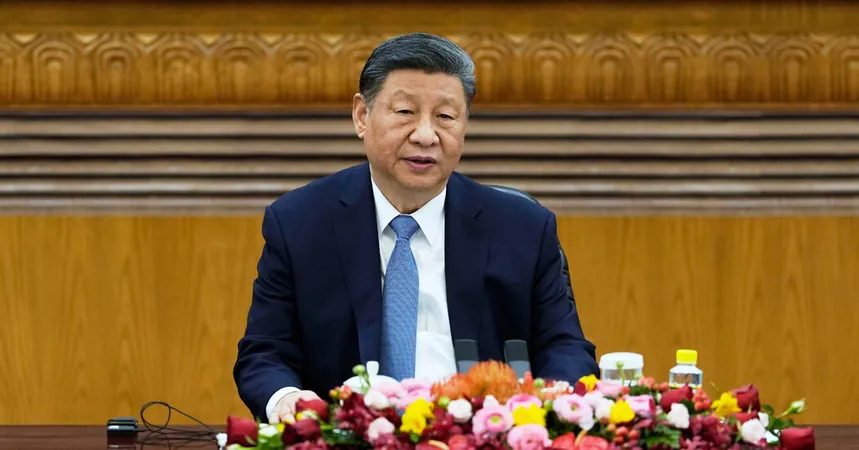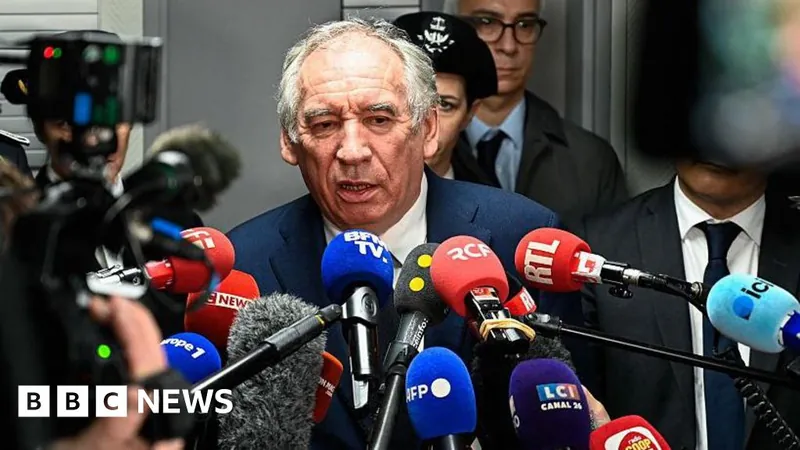
Xi Jinping's High-Stakes Southeast Asia Tour: Navigating a Trade War with the U.S.
2025-04-13
Author: Ling
As tensions escalate between China and the United States over a brutal trade war, China's leader, Xi Jinping, sets out on a crucial diplomatic mission in Southeast Asia. This week, he will visit Vietnam, Malaysia, and Cambodia, aimed at solidifying friendships that could buffer China against the staggering tariffs imposed by President Trump.
Xi’s tour starts in Vietnam on Monday, where he is expected to announce around 40 agreements. Among them is a key deal for Vietnamese infrastructure, which includes Chinese loans for an $8.3 billion railway linking northern Vietnam to China. This is not just about commerce; it's Xi's attempt to position China as a trustworthy partner amid U.S. market volatility.
A Delicate Balancing Act in Trade Relations
Southeast Asian nations, like Vietnam and Malaysia, find themselves in a diplomatic quagmire. While they seek to negotiate relief from U.S. tariffs, they also must tread lightly to avoid alienating China, their primary trading partner. China's influence has surged over the past decade, making it essential for countries like Vietnam, which relies on Chinese raw materials for their booming export industries.
However, the looming shadow of U.S. tariffs complicates matters. There's a real concern that if tariffs continue, a flood of cheap Chinese goods could inundate their markets, further destabilizing local economies.
Xi's Visit: A Strategic Move
Political analysts suggest that Xi is keen to understand how Southeast Asian countries will respond to the ongoing U.S.-China trade war. Ja Ian Chong, a political science professor at the National University of Singapore, notes that Xi’s goals include mending ties to mitigate any potential friction, especially regarding concerns like product overcapacity and 'dumping' of goods.
Sonal Varma, chief economist for Asia at Nomura, predicts that Southeast Asian nations may implement protective measures against a potential influx of Chinese products, signaling their intent to protect local economies.
Navigating Between Giants: China's Influence vs. U.S. Relations
While attempting to draw benefits from China, Southeast Asian leaders must also avoid projecting an image of closeness that could jeopardize their negotiations with the U.S. For instance, some Vietnamese officials worry that the high-profile nature of Xi's visit might complicate their push for tariff relief from Trump. Khang Vu, a scholar from Boston College, emphasizes the necessity for Vietnam to maintain a posture that doesn’t align too closely with China.
Meanwhile, Malaysia's Prime Minister Anwar Ibrahim recently defended the region’s ties with China, acknowledging that while challenges exist, China remains an indispensable player in the Southeast Asian economy. He stressed the importance of securing peace, security, and economic benefits amid complex global dynamics.



 Brasil (PT)
Brasil (PT)
 Canada (EN)
Canada (EN)
 Chile (ES)
Chile (ES)
 Česko (CS)
Česko (CS)
 대한민국 (KO)
대한민국 (KO)
 España (ES)
España (ES)
 France (FR)
France (FR)
 Hong Kong (EN)
Hong Kong (EN)
 Italia (IT)
Italia (IT)
 日本 (JA)
日本 (JA)
 Magyarország (HU)
Magyarország (HU)
 Norge (NO)
Norge (NO)
 Polska (PL)
Polska (PL)
 Schweiz (DE)
Schweiz (DE)
 Singapore (EN)
Singapore (EN)
 Sverige (SV)
Sverige (SV)
 Suomi (FI)
Suomi (FI)
 Türkiye (TR)
Türkiye (TR)
 الإمارات العربية المتحدة (AR)
الإمارات العربية المتحدة (AR)